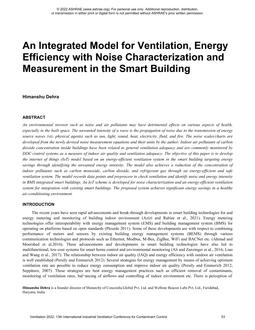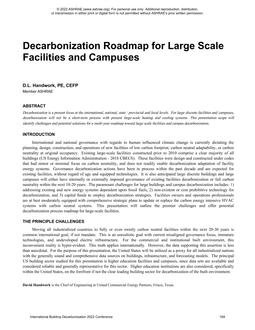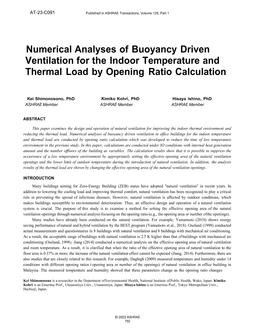
008 — An Integrated Model for Ventilation, Energy Efficiency with Noise Characterization and Measurement in the Smart Building
Click here to purchase
An environmental stressor such as noise and air pollutants may have detrimental effects on various aspects of health, especially in the built space. The unwanted intensity of a wave is the propagation of noise due to the transmission of energy source waves (viz. physical agents) such as sun, light, sound, heat, electricity, fluid, and fire. The noise scales/charts are developed from the newly devised noise measurement equations and their units by the author. Indoor air pollutants of carbon dioxide concentration inside buildings have been related to general ventilation adequacy and are commonly monitored by DDC control systems as a measure of indoor air quality and ventilation adequacy. The objective of this paper is to develop the internet of things (IoT) model based on an energy-efficient ventilation system in the smart building targeting energy savings through identifying the unwanted energy intensity. The model also achieves a reduction of the concentration of indoor pollutants such as carbon monoxide, carbon dioxide, and refrigerant gas through an energy-efficient and safe ventilation system. The model records data points and preprocess to check ventilation and identify noise and energy intensity in BMS integrated smart buildings. An IoT scheme is developed for noise characterization and an energy-efficient ventilation system for integration with existing smart buildings. The proposed system achieves significant energy savings in a healthy air-conditioning environment.
Product Details
- Published:
- 2022
- Number of Pages:
- 8
- Units of Measure:
- Dual
- File Size:
- 1 file , 1000 KB
- Product Code(s):
- D-IIVC2022-C008
- Note:
- This product is unavailable in Russia, Belarus


